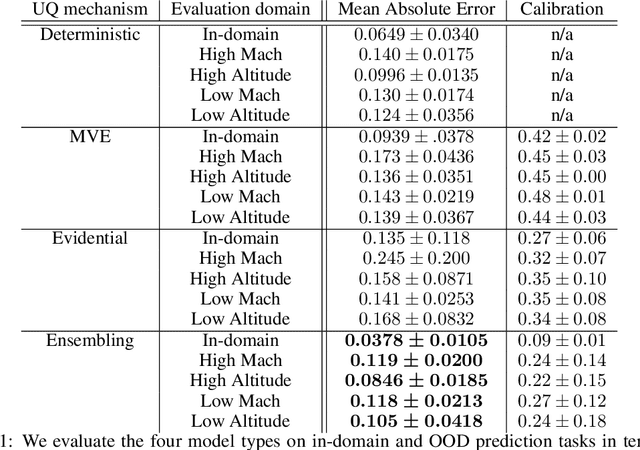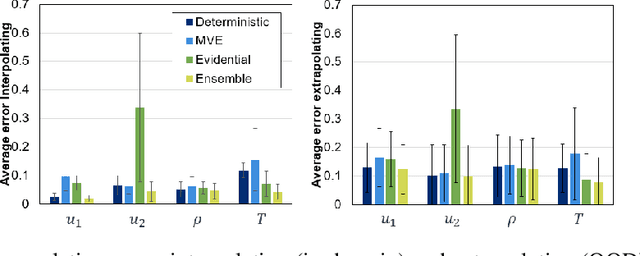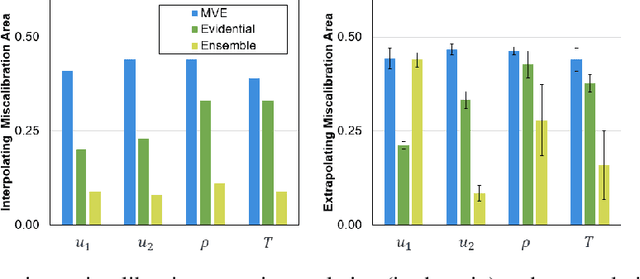Ensemble models outperform single model uncertainties and predictions for operator-learning of hypersonic flows
Paper and Code
Nov 03, 2023



High-fidelity computational simulations and physical experiments of hypersonic flows are resource intensive. Training scientific machine learning (SciML) models on limited high-fidelity data offers one approach to rapidly predict behaviors for situations that have not been seen before. However, high-fidelity data is itself in limited quantity to validate all outputs of the SciML model in unexplored input space. As such, an uncertainty-aware SciML model is desired. The SciML model's output uncertainties could then be used to assess the reliability and confidence of the model's predictions. In this study, we extend a DeepONet using three different uncertainty quantification mechanisms: mean-variance estimation, evidential uncertainty, and ensembling. The uncertainty aware DeepONet models are trained and evaluated on the hypersonic flow around a blunt cone object with data generated via computational fluid dynamics over a wide range of Mach numbers and altitudes. We find that ensembling outperforms the other two uncertainty models in terms of minimizing error and calibrating uncertainty in both interpolative and extrapolative regimes.
 Add to Chrome
Add to Chrome Add to Firefox
Add to Firefox Add to Edge
Add to Edge